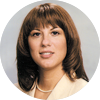If you find yourself saying, "It's okay if you can't pay today. We'll just bill you," you are communicating to your patients that their financial responsibilities to the clinic are not important.
If you came into this position without any previous experience in collections or you were not properly scripted before being in control at the front desk, don't be too hard on yourself. When training and consulting across the country, I have found that few CAs are experts in collections. So don't fear, I am here to give you a few pointers.
First, does your clinic have a written financial policy that every patient is responsible for reading and signing at the beginning of treatment? If not, this is where you and your doctors need to begin. I suggest brainstorming on the content during the next couple of weeks during your staff meeting. When your physicians are happy with the content, implement it ASAP. I have a few suggestions that I include in these types of policies. Your clinic's financial policy should include the following information:
a) Fees are due when services are rendered.
"All fees and patients' co-pays are due the day services are rendered." I highly recommend that your doctor state to all new patients this and any fees that will be due at the patient's first visit, during the initial consultation. This helps prepare the new patient to know how much to expect to pay you at the front desk that day.
When the patient comes out from seeing the doctor, and you know the patient has a fee that needs to be paid that day, your script should be: "Your fee for today's visit is: ___ (never say "dollars"). Will that be cash or check?" Begin writing the patient a receipt. If the patient wants to charge it, ask, "Will you be using your MasterCard or Visa?" If the patient asks not to charge it until the next visit, politely say, "No, it is a strict policy of this office that patients pay for fees at the time services are rendered." Then wait for a response. Remember, the person who speaks first "loses." If the patient states he can't pay for several days or until next week, this is your response: "I have been authorized to accept a postdated check. I will hold it in the clinic's safe until that date." A postdated check is better than nothing.
b) Offer credit card payments as an option.
State the credit cards you accept on your financial policy. Credit cards are an important payment option for many patients.
c) An insurance verification will be done by the clinic's staff prior to the clinic accepting assignment on any insurance benefits.
This will be done after the doctor has pre-qualified the patient for care in the clinic.
This should obviously be stated only if your clinic accepts assignment of benefits for the majority of major medical policies you are familiar with in your community.
As far as active patients are concerned, I recommend putting a large notice at the front desk area about the change in your office policy. It should state something to this effect: "Effective Immediately - All patient fees, co-payments and yearly deductibles must be paid at the front desk on the day of service. Our clinic will no longer be mailing regular monthly statements."
I also recommend making small handouts of this statement to give to patients that have attempted to ignore your posted request. You most likely have a patient or two that will try to keep doing this. You will need to confront yhose patients as soon as possible. I recommend having a private financial meeting with those individual patients and set up a monthly or bimonthly payment plan for the patient balance owed. But be firm about collecting for future visits, and do not allow more charges to the clinic's receivables. Doctors should choose their charities, not allow their charities to choose them!
It is important to get control over front desk collection and stay in control. Look for my future articles that will advise you on how to stop the administrative costs of doing regular monthly billing.
Until next time, CAs: Go out and make a difference!
Rose Jacobs
Chesterfield, Missouri
Click here for previous articles by Rose Jacobs, CA.





